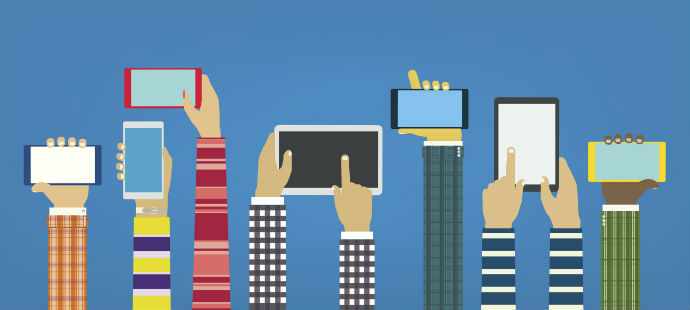CO Taps Google, Apple to Support COVID-19 Contact Tracing App
The COVID-19 contact tracing app leverages the Google-Apple framework to share anonymous “tokens” with other phones so that users will be notified if they were exposed to the coronavirus.

Source: Thinkstock
- The Colorado Department of Public Health and Environment (CDPHE) recently launched its statewide COVID-19 contact tracing system using the Google-Apple framework.
According to an announcement from Governor Jared Polis, CO Exposure Notifications is a free, voluntary service that will be available to Android and Apple iPhone users across Colorado.
For smartphone users, the exposure can be turned on in settings, while for Android users, an exposure app can be downloaded onto the phone. A notice was sent statewide to all users on Sunday with instructions for their individual systems.
When the service is enabled, Bluetooth technology shares anonymous “tokens” with other phones. If an individual tests positive for COVID-19 and uploads their results, those who have been in contact with infected people will receive an alert of potential exposure.
Notably, these tokens are not associated with a specific phone number, name, location, or IP address, and they change every 15 minutes to ensure patient protection.
“We must regain lost ground against this deadly virus, and we need every tool at our disposal to protect ourselves, our families, our communities, and our small businesses,” said Governor Polis in the announcement. “It’s important for Coloradans to enable CO Exposure Notifications on your iPhone or Android to help save lives, to contain this deadly disease, protect your loved ones, and to use every technological advantage we have against the virus.”
CO Exposure Notifications will complement existing statewide health safety protocols, without compromising the privacy of citizens, Polis added.
Overall, experts believe that notification systems are vital to protect the spread of the coronavirus, even if only a few people use them.
An Oxford University and Google study found that a COVID-19 exposure app used by 15 percent of the population, along with a contact-tracing workforce, can lead to an eight percent decrease in infection rates and a six percent decrease in COVID-19 deaths.
And all levels of exposure notification uptake levels in the UK and the US have the potential to meaningfully reduce the number of COVID-19 cases, hospitalizations, and deaths, said Christophe Fraser, co-lead author of the study and scientific advisor to the UK government test & trace program and group leader in pathogen dynamics at Oxford University’s Nuffield department of medicine.
But a contact-tracing app should be integrated and continually updated along with other existing and new infection control measures, including social distancing and restricted travel.
At the start of the pandemic, Google and Apple joined together to enable the use of Bluetooth technology to help governments and health agencies boost COVID-19 contact tracing.
Since then, multiple organizations have enhanced their efforts by working to integrate the Google-Apple framework into their health systems.
In August, Virginia became the first state to launch a contact-tracing app, Covidwise, using the Google-Apple framework and Bluetooth technology to notify individuals if they were exposed to the coronavirus.
Covidwise notifies an individual if they may have been exposed to the virus without receiving personal information from the contact or user. If one of the users tested positive for COVID-19, the system will notify the individual through a six-digit pin provided by the Virginia Department of Health.
Then at the end of September, Washington and Oregon joined California in piloting a project to test promising exposure notification technology by Google and Apple.
These three states joined Colorado and Nevada, which are also members of the Western States Pact. The pilot will also include universities across the country.
The app confidentially notifies individuals who may have been exposed to someone who tested positive for the virus but does not collect personal location data from any device. Users must physically opt-in to the technology.
The contact tracing strategy in Colorado will also work to address patient privacy concerns.
“We understand the importance of privacy and security and have taken extensive steps to ensure personal information is not collected, stored or transmitted through the use of CO Exposure Notifications,” said Sarah Tuneberg, lead of Colorado’s Containment and Testing Team and CO Exposure Notifications service lead.
